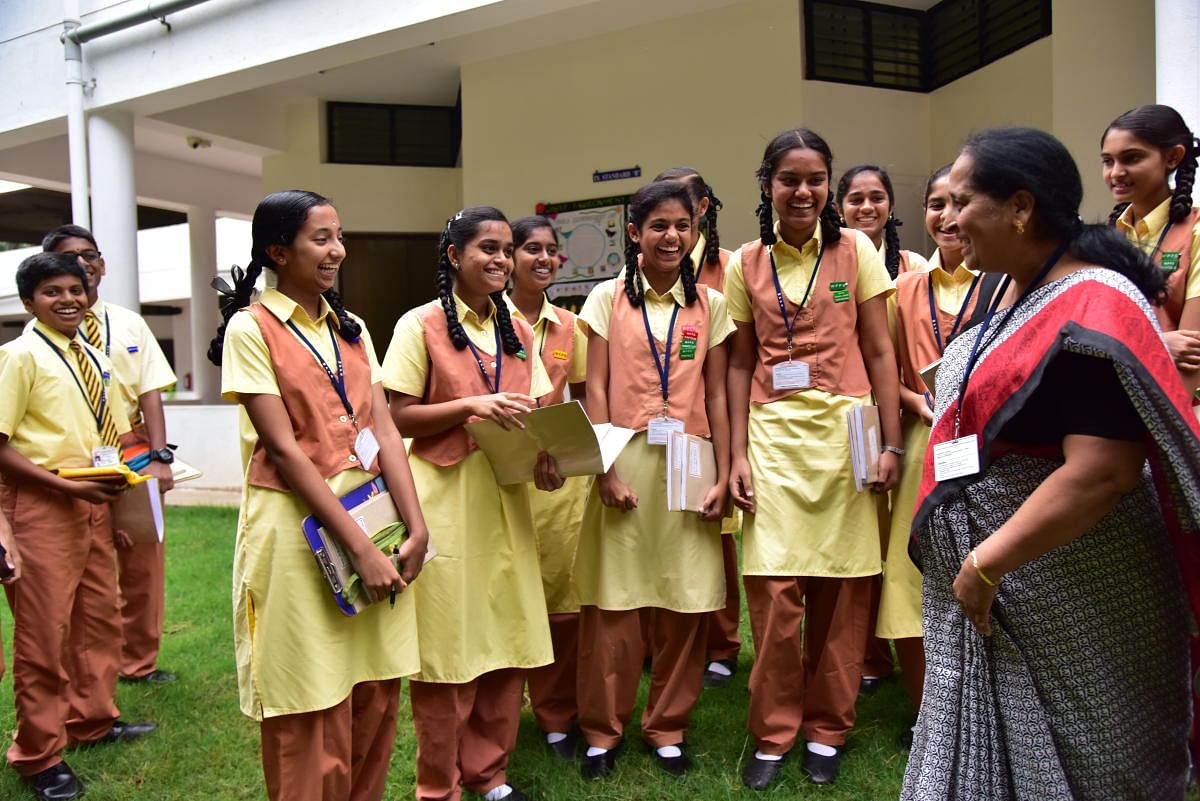
All students will not be the same in college, school or classroom. Their social, economic backgrounds, intelligence, skill sets and behavioural patterns may differ. Modestly, completing the prescribed syllabus, recommending a good textbook, providing course materials and expecting students to excel at the end of the semester or academic year seldom work.
Empathising with their emotive disquiets, providing them well-timed moral backing and direction can bring about a sea change in their total performance. Hence, counselling is quintessential for the present generation.
The most common factors that impact students’ overall performance and behaviour are family worries, financial uncertainties or maltreatment. So, counselling and mentoring are some of the pedagogical tools to make students achieve academic excellence.
Most schools in the country have realised the need for regular counselling and have a counsellor as part of their teaching team.
Towards progress
The counsellors may initiate individual sessions, which require exceptional care, arranging interactive sessions and group activities. Earlier, the counselling was not data-driven, unlike now which has certainly advanced the success rates. This has even made counsellors identify slow learners through individual counselling and recognise their challenges. Using step-by-step practices, counsellors can add more value in refining academic outcomes.
Counsellors can find solutions through the following methods.
Do not hesitate to create an encouraging classroom session where students can easily share their ideas.
Try to build their confidence and memory through positive student storytelling.
Take practical sessions on how to set SMART (Specific, Measurable, Attainable, Realistic) goals.
Impress on the fact that most achievements are the outcomes of hard work and dedication. Building effective interpersonal relationship skills is a must.
Shaping slow learners
A promising and seasoned counsellor will also assist students in nurturing good decision-making skills pertaining to personal, professional and academic circles. A well-counselled student will be able to appreciate the fact that no choices must come out of momentary emotions but it ought to be a well-thought-out one that can select their future whether it is the choice of course or career. Resilient care when making decisions at critical transitions of life can make notable positives in their future. A few reassuring words at struggling times might increase their standpoint towards family, school and future.
Minimising school dropouts
The lack of exemplary motivation and low confidence level are the sound reasons for college dropouts despite academic failures. A committed counselling team may extend emotional and moral support to students to minimise failures and combat circumstances with a strong will and confidence. Favouritism, nepotism, discrimination, lack of comfortable school or classroom ambience and victimisation in schools are also reasons for students to drop out of schools.
Emotional skills
Counsellors also need to focus on improving a student’s social and emotional skills. Social and emotional skills deal with identifying one’s emotions, having certain control over them, empathising with others, treatment of conflict well and making good choices about personal and social behaviour.
Special sessions on self-awareness, self-management, social awareness and relationship management are to be designed to fine-tune their attitude, understanding as well as self-monitoring. For students who are not ready to disclose family problems, special meetings can also be held with their parents and teachers.
Getting them future-ready
Another prime objective of the counsellor is to make slow learners career-ready. A school or college can give them access to better options like games, interactive books, STEM toys, worksheets and other such activities. Another unique idea can be made to stick lesson pamphlets on soft boards so that they act as constant reminders.
Physical and mental health
Counsellors should make slow learners begin their everyday life with something positive. They should make them focus on one aspect at the moment. They should allow students to go for a walk and teach them yoga. One of the major challenges is to assist students to overcome unhappiness and face life confidently.
At counselling and mentoring sessions, slow learners must be trained on how to perform confidently in real-life scenarios. Short-training programmes on ethics, discipline and virtues might be of immediate help in shaping up a student’s behaviour and values.
Finally, counsellors need to provide slow learners with awareness about the fast-changing world that would give them a good sense of direction and focus. So, every school or college authority need to incorporate student counselling not just as an elective but as a compulsory subject.